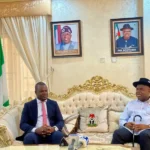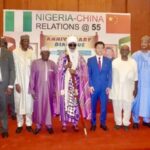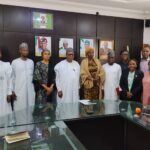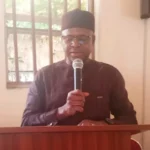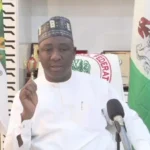By Perpetua Onuegbu
Konrad-Adenauer-Stiftung (KAS) Nigeria has called for credible electoral processes at the local government level to enable the election of competent representatives capable of addressing grassroots needs.
The Resident Representative of KAS Nigeria, Ms Marija Peran, made the call at a one-day dialogue in Abuja.
The dialogue, organised by the Civil Society Legislative Advocacy Centre (CISLAC) in collaboration with KAS, had the theme: “Local Government Autonomy in Nigeria: Effects of Corruption and Inefficiency on Good Governance”.
Peran, represented by the KAS Programme Manager, Mr Samson Adeniran, identified corruption and inefficiency as major obstacles to effective local governance.
She said addressing these issues required not only institutional reforms but also a collective commitment to integrity and accountability at all levels.
She added that the way local government elections are conducted determines the level of autonomy councils enjoy.
“Electoral processes must enable genuine representation, allowing competent leadership to emerge free from undue external influence.
“Without credible and fair elections, local governance risks becoming an extension of centralised control instead of an independent structure responsive to the grassroots,” she said.
She also called for constitutional and legislative reforms that would safeguard local government independence while ensuring strong accountability frameworks.
Executive Director of CISLAC, Mr Auwal Rafsanjani, said financial autonomy for local governments had not translated into good governance due to political interference and weak institutions.
He said in many states, local governments functioned as extensions of state executive power, with local officials accountable to governors instead of the people.
“Appointments, elections, budget allocations and contract awards are often dictated by state actors.
“The practice of replacing elected councils with unelected caretaker committees, sometimes for years, is a breach of the constitution.
“These actions undermine democracy and hinder development at the grassroots,” he said.
Rafsanjani also called for scrutiny of joint state-local government accounts, describing them as channels for siphoning public funds.
“Without transparency, autonomy remains symbolic,” he said.
Chairman of the Independent Corrupt Practices and Other Related Offences Commission (ICPC), Dr Musa Aliyu, said state-level influence had led to structural and operational weaknesses in local governance.
He said although Section 7 of the 1999 Constitution recognises local governments as a democratic tier, challenges persist.
Aliyu noted that unqualified individuals were often appointed as chairmen and councillors, weakening service delivery.
“Inadequate electoral processes fail to produce credible leaders, and this opens the door for corruption,” he said.
Also speaking, a professor of economic history and lawyer, Prof. Adetunji Ogunyemi of Obafemi Awolowo University, said the Supreme Court judgment of July 11, 2024, had granted local governments fiscal autonomy.
“Local governments can no longer claim they are financially constrained by state governments.
“They now have full autonomy to pursue their budgets and operate independently,” he said. (NAN)(www.nannews.ng)
Edited by Tosin Kolade

